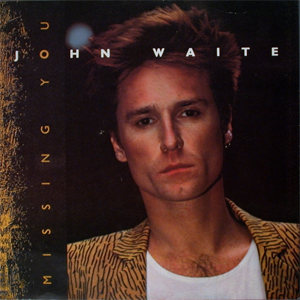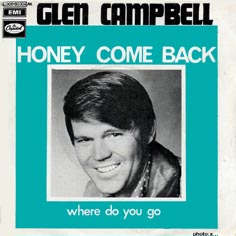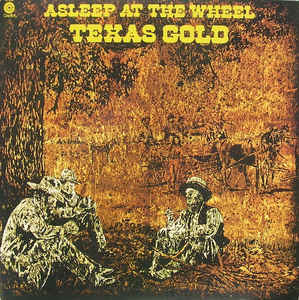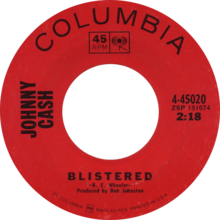"Always on My Mind" is a ballad written by Wayne Carson, Johnny Christopher, and Mark James, first recorded by Brenda Lee, and first released by Gwen McCrae in March 1972. Lee's version was released three months later in June 1972. The song has been a crossover hit, charting in both the country and western and pop categories. Elvis Presley's recording was the first hit version of the song.

"Since I Don't Have You" is a song written and composed by Jackie Taylor, James Beaumont, Janet Vogel, Joseph Rock, Joe Verscharen, Lennie Martin, and Wally Lester. It was first a 1958 hit single for the doo-wop group the Skyliners on the Billboard Hot 100. Country music singer Ronnie Milsap had a hit with the song in 1991. American hard rock band Guns N' Roses also had some success in 1994 with their version of the song which reached the top 10 on the UK Singles Chart.

"Missing You" is a song co-written and recorded by English musician John Waite. It was released in June 1984 as the lead single from his second album, No Brakes (1984). It reached number one on Billboard's Album Rock Tracks and on the Hot 100 as well as number 9 on the UK Singles Chart. "Missing You" was the only record from 1984 to spend a single week at the top of the Hot 100. The song was nominated for the 1985 Best Pop Vocal Performance Male Grammy Award.
"If I Were a Carpenter" is a folk song written by Tim Hardin in the 1960s, and re-recorded with commercial success by various artists including Bobby Darin, The Four Tops and Johnny Cash. Hardin's own recording of the piece appeared on his 1967 album Tim Hardin 2. It was one of two songs from that release performed by Hardin at Woodstock in 1969. The song, believed by some to be about male romantic insecurity, is rumored to have been inspired by his love for actress Susan Morss, as well as the construction of Hardin's recording studio.
"To Know Him Is to Love Him" is a song written by Phil Spector, inspired by words on his father's tombstone, "To Know Him Was to Love Him." It was first recorded by the only vocal group of which he was a member, the Teddy Bears. Their recording spent three weeks at No. 1 on the Billboard Hot 100 chart in 1958, while reaching No. 2 on the UK's New Musical Express chart. Peter & Gordon and Bobby Vinton later had hits with the song, with its title and lyrics changed to "To Know You Is to Love You". In 1987, the song was resurrected by Dolly Parton, Linda Ronstadt, and Emmylou Harris, whose Trio recording topped the U.S. country singles chart. The song is in 12/8 time.

The discography of Rosanne Cash, an American singer-songwriter, consists of 14 studio albums, six compilation albums, and 39 singles. The daughter of Johnny Cash, Rosanne Cash recorded her self-titled debut album in 1978 under the German label Ariola. After signing with Columbia Records in 1979, Cash's second studio album Right or Wrong was released. Its lead single "No Memories Hangin' Around" reached the Top 20 on the Billboard Hot Country Songs chart. Cash's third studio release, Seven Year Ache (1981), gained major success when the title track peaked at number one on the Billboard Country chart. It was then followed by "My Baby Thinks He's a Train" and "Blue Moon with a Heartache," which also reached the top spot. The album's follow-up effort, Somewhere in the Stars (1982) produced three Top 20 hits on the Billboard chart.

Steve Wariner is an American country music singer, songwriter and guitarist. His discography comprises nineteen studio albums, six compilation albums, and fifty-five singles. Of his studio albums, three are certified gold by the Recording Industry Association of America (RIAA) for shipments of 500,000 copies each: 1991's I Am Ready, and Burnin' the Roadhouse Down and Two Teardrops from 1998 and 1999 respectively. I Am Ready was Wariner's first release for Arista Nashville following tenures on RCA and MCA Nashville, and Burnin' the Roadhouse Down his first for Capitol Records.

"Then You Can Tell Me Goodbye" is a song written by John D. Loudermilk. It was first released in 1962 by Don Cherry, as a country song and again as a doo-wop in 1967 by the group The Casinos on its album of the same name, and was a number 6 pop hit that year. The song has since been covered by Eddy Arnold, whose version was a number 1 country hit in 1968, and by Neal McCoy, whose version became a Top 5 country hit in 1996.
"A Thing Called Love" is a song written and originally recorded by Jerry Reed in 1968. This song has been recorded by many artists, including Jimmy Dean, Elvis Presley, Glen Campbell and Dave Dudley. In 1971, the song was recorded by Johnny Cash and it became a No. 1 country hit in Canada. The record was Cash's biggest hit in Europe, charting in Ireland, the United Kingdom, and the Netherlands.

"Do I Love You" is a song co-written and recorded by Paul Anka, from his 1972 eponymous LP. Released as an advance single in late 1971, "Do I Love You" reached number 14 on the Easy Listening Singles charts of both the U.S. and Canada, number 16 on the Canadian Pop chart, and was a modest hit on the U.S. Hot 100 as well. As with the earlier "My Way", it was adapted from a French-language song popularized by Claude François, and Anka composed the English lyrics.

"Can't You See" is a song written by Toy Caldwell of The Marshall Tucker Band. The song was originally recorded by the band on their 1973 debut album, The Marshall Tucker Band, and released as the album's first single. It was re-released in 1977 and peaked at number 75 on the Billboard Hot 100. Cover versions of "Can't You See" have charted for Waylon Jennings and the Zac Brown Band with Kid Rock (2010).
"Any Old Wind That Blows" is a song recorded by American country music artist Johnny Cash. It was released in November 1972 as the third single from his album Any Old Wind That Blows. The song peaked at number 3 on the Billboard Hot Country Singles chart. It also reached number 1 on the RPM Country Tracks chart in Canada. The song was written by Deena Kaye Rose.
"Oney" is a song recorded by American country music artist Johnny Cash. It was released in July 1972 as the second single from his album Any Old Wind That Blows. The song peaked at number 2 on the Billboard Hot Country Singles chart. It also reached number 1 on the RPM Country Tracks chart in Canada. The song was written by Jerry Chesnut.
"Kate" is a song written by Marty Robbins, and recorded by American country music artist Johnny Cash. It was released in March 1972 as the third single from his album A Thing Called Love. The song peaked at #2 on the Billboard Hot Country Singles chart. It also reached #1 on the RPM Country Tracks chart in Canada. The song was originally recorded by Rex Allen on a 1961 single with the title "You Put Me Here " issued on San Antonio-based Hacienda Records Catalog No. WW-007.

"Honey Come Back" is a song written by Jimmy Webb, and recorded by the American country music artist Glen Campbell. It was released in January 1970 as the second single from his album Try a Little Kindness. The song peaked at number 2 on the Billboard Hot Country Singles chart. It also reached number 1 on the RPM Country Tracks chart in Canada.
"What Is Truth" is a song written and recorded by American country music artist Johnny Cash released in February 1970.

The Johnny Cash discography chronicles the output of American singer Johnny Cash. His lengthy career, spanning 1954 to 2003, saw the release of 91 albums and 170 singles on several record labels. Over the years, Cash also collaborated with many of the industry's most notable artists.
"With Pen in Hand" is a song written by Bobby Goldsboro and first released on his March 1968 album, Honey. The song's lyrics address the subjects of divorce and losing custody of one's child, and are sung from the perspective of the parent who expects to be losing custody of their child, as they make a final plea to their spouse to reconcile before the divorce is finalized. "With Pen in Hand" has been a hit for multiple artists in the late 1960 and 1970s.

Texas Gold is the third album by American country band Asleep at the Wheel. Produced by Tommy Allsup primarily at Jack Clement Studios in Nashville, Tennessee, it was released in August 1975 as the group's first album on Capitol Nashville. The album was the band's first commercial success, charting on the US Billboard 200 and reaching the top ten of the Top Country Albums chart. Lead single "The Letter That Johnny Walker Read" also reached the Hot Country Songs top ten.
"Even Cowgirls Get the Blues" is a song written by Rodney Crowell. It has since been covered by several artists, notably La Costa, Emmylou Harris and Lynn Anderson. Crowell claims to have written "Even Cowgirls Get The Blues" about Harris and her pal Susanna Clark. The title of the song is taken from the then-popular novel of the same name by author Tom Robbins. The song has been released as a single twice and has also has appeared on albums of various artists.










